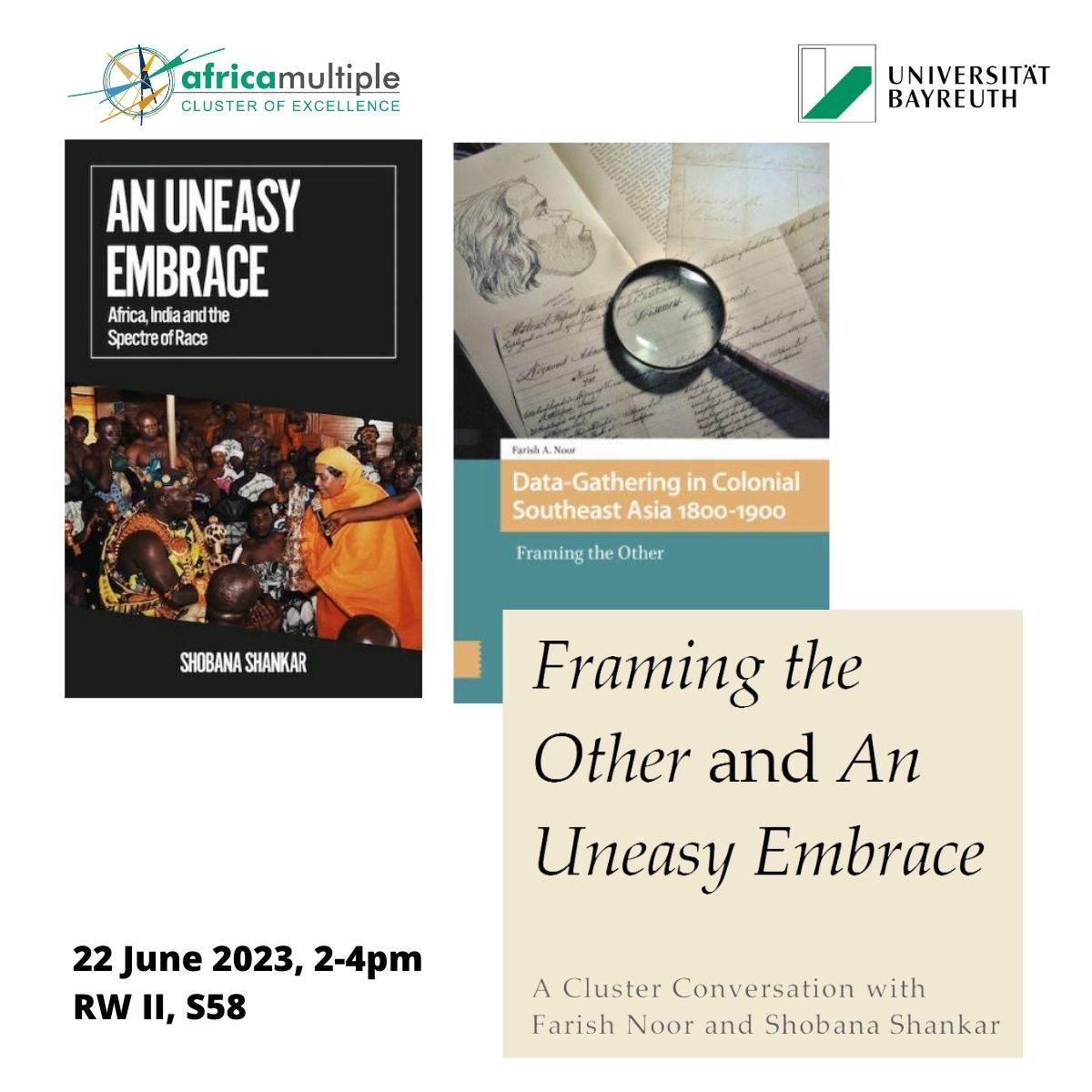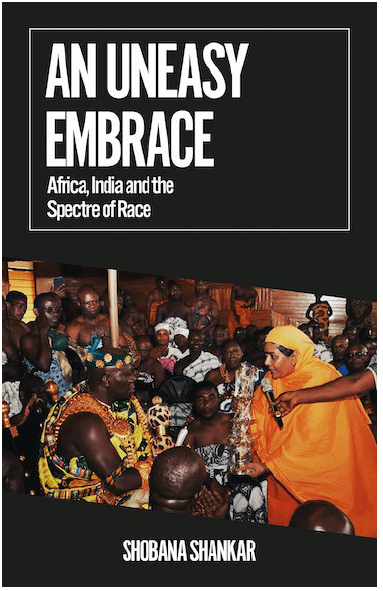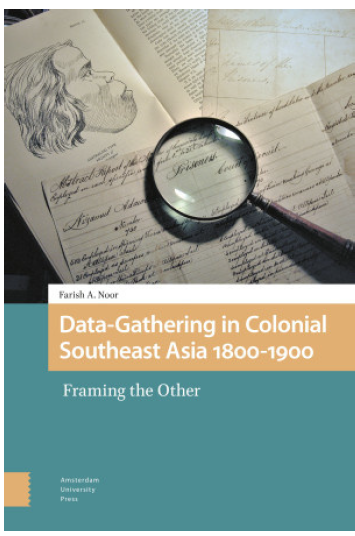Important Dates
Round Table Event: Framing the Other and An Uneasy Embrace
Thursday 22.06.23, 2 pm - 4 pm
Zoom | RW I, S58, Uni-Bayreuth
Framing the Other and An Uneasy Embrace.
A Cluster Conversation with Farish Noor and Shobana Shankar
22 June 2023, 2 pm - 4 pm,
Zoom (Meeting ID: 668 1584 8399; Passcode: 897688) || Room S 58, RW I, Uni-Bayreuth
This round table brings two books into conversation with each other: Farish Noor’s Framing the Other (2019) and Shobana Shankar’s An Uneasy Embrace (2021). Please find attached a detailed description of the event and the preparatory readings.
Organization & Moderation:
Britta Frede (University of Bayreuth)
Christine Vogt-William (University of Bayreuth)
Roundtable Participants:
Shobana Shankar (Stony Brook University, USA)
Farish Noor (University Malaya, Malaysia)
Rüdiger Seesemann, (University of Bayreuth)
Jochen Linglbach, (University of Bayreuth)
The entwined histories of Blacks and Indians defy easy explanation. From Ghanaian protests over Gandhi statues to American Vice President Kamala Harris's story, this relationship—notwithstanding moments of common struggle—seethes with conflicts that reveal how race reverberates throughout the modern world.
Empire-building did not only involve the use of excessive violence against native communities, but also required the gathering of data about the native Other. This is a book about books, which looks at the writings of Western colonial administrators, company-men and map-makers who wrote about Southeast Asia in the 19th century. In the course of their information-gathering they had also framed the people of Southeast Asia in a manner that gave rise to Orientalist racial stereotypes that would be used again and again. Data- Gathering in Colonial Southeast Asia 1800-1900: Framing the Other revisits the era of colonial data-collecting to demonstrate the workings of the imperial echo chamber, and how in the discourse of 19th century colonial-capitalism data was effectively weaponized to serve the interests of Empire




